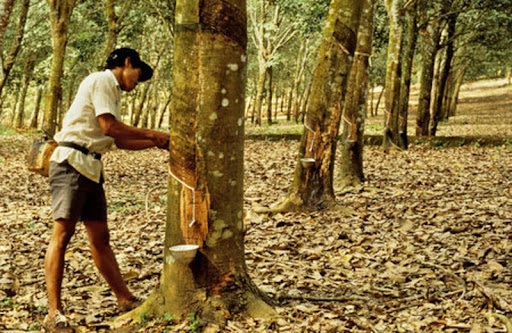F or tyre companies, financial results in the third quarter this financial year pose a paradox. Robust top line growth notwithstanding, tyre firms are taking huge dent on profits owing to three-times spurt in natural rubber prices.
or tyre companies, financial results in the third quarter this financial year pose a paradox. Robust top line growth notwithstanding, tyre firms are taking huge dent on profits owing to three-times spurt in natural rubber prices.
Two tyre companies, JK Tyre and Ceat have declared lower net profits during September-December 2010 despite higher net sales numbers. Other two big tyre firms, MRF and Apollo are likely to report a similar trend in compressed net profits owing to rubber input costs.
“Every rupee hike in natural rubber prices that comprise 50 per cent of tyre output volume, hurts tyre industry’s revenue earnings by Rs 60 crores,” Neeraj Kanwar, nanaging director of Apollo Tyres said.
Last week, tyre companies JK Tyre and Ceat reported lower net profits from third quarter last year by 75 per cent (at Rs 9.14 crore) and 79 per cent (Rs 5 crore) respectively.
Interestingly enough, both tyre companies have posted healthy revenues growth on back of higher demand from a robust automobile industry.
JK Tyre reported net sales of Rs 1,179 crore in the third quarter, up 47 per cent over the same quarter previous year. Ceat too saw its net sales surge 25 per cent at Rs 895 crore for the quarter that closed December 2010.
Apollo’s performance is not likely to be any different though Kanwar was unwilling to divulge any numbers. The company is expected to declare its third quarter results in 10 days’ time.
Modest net profits being posted by tyre companies is being attributed to 167 per cent jump in spot prices of domestic natural rubber year on year at Rs 225 per kg, Rubber Board of India price data for Monday reflected.
“Rubber prices have kept volatile through 2010 owing to strong automobile sector demand from China, added with weather concerns in growing regions of India and South-East Asian nations,” said Rajiv Budhraja, director general of Automotive Tyre Manufacturers Association.
Tyre industry has raised product prices by around 18-20 per cent in January-December 2010. This, however, hasn't been enough to absorb the rise in rubber prices. Prices of other raw materials such as NTC fabric and carbon black have also risen 6 per cent and 25 per cent in the last one-year period.
"We have raised tyre prices by 2-4 per cent on January 27 and may need to do it again. There is no other way (to deal with high rubber prices) than product price increases and efficiency improvement,” said AS Mehta, marketing director at JK Tyres.
Commodity analysts see natural rubber prices bullish in next six months, but high crude prices have dented the outlook in near term. “We do not see rubber prices softening in next six months. Prices would continue the up-trend till China’s demand eases,” said Binoo Joseph, Kochi-based rubber trader and importer.
Other tyre makers Apollo Tyres and MRF will announce their third quarter earnings shortly. Expectations are that these companies are likely to report subdued margins owing to higher rubber prices. Stock analysts expect them to hike tyre prices yet again in coming days.
“There is a limit at which the company can pass on rising raw material costs to vehicle manufacturers. With rubber prices trading high, tyre companies need to still hike prices to maintain profitability,” auto analyst at Prabhudas Liladher, Surjit Arora said.
Rubber futures prices in global benchmark index, Tokyo Commodity Exchange, touched an all time high of 460.40 yen (Rs 243) per kg on January 19, but have eased a bit at around 435 yen per kg level at present.
Higher production notwithstanding, India may have to import nearly 1.6 mt natural rubber this year to meet its domestic demand from tyre and rubber ancillary industries.
Rubber Board estimates India natural rubber production to go up this year to 925,000 tonne from 878,000 tonne in the season that ended on September 30, 2010.
(Source: http://www.mydigitalfc.com/news/costly-rubber-hurts-tyre-firms-575)
No comments:
Post a Comment